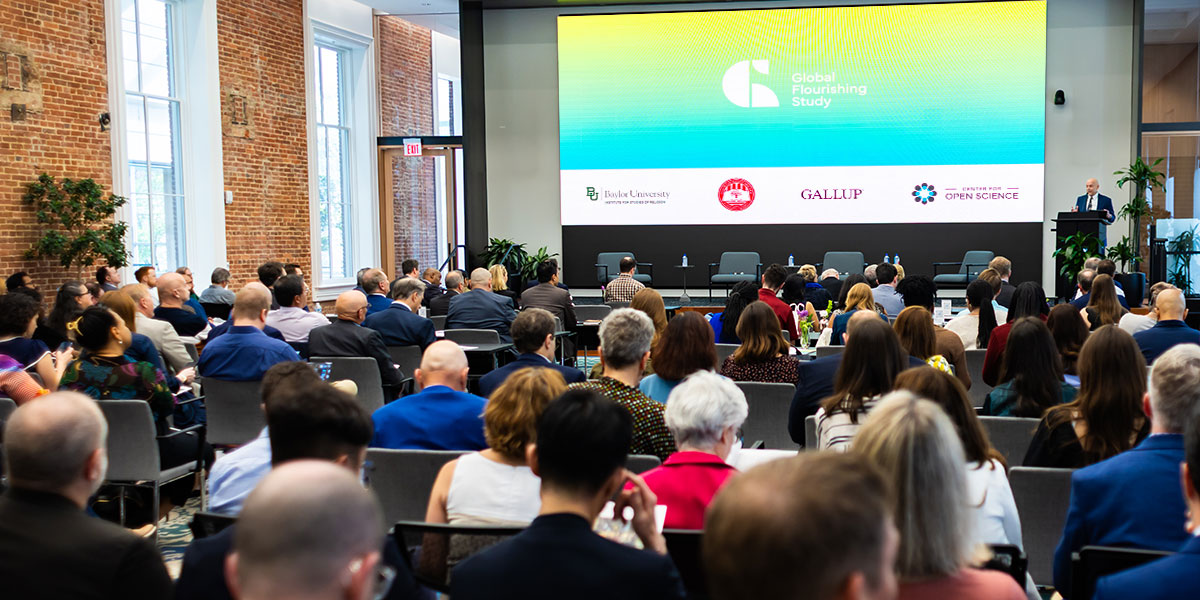Initial findings from Baylor’s Global Flourishing Study draw worldwide attention

Last week, Baylor released the first-wave findings of the Global Flourishing Study — one of the most comprehensive studies of human existence ever undertaken, and the largest funded research project in Baylor history.
How big a deal is this study? The coverage it attracted is one indication; the results were widely covered in major media outlets ranging from The New York Times to National Geographic to CNN to Christianity Today (and more).
Most attempts to measure happiness stop at a surface level. The Global Flourishing Study dives deeper, looking at not just feelings or wealth but all aspects of a person’s life. And it’s doing so on a grand scale, studying more than 200,000 individuals across 20 countries and five years. That allows researchers to crunch the numbers in a wide variety of ways (focusing on specific countries, age groups, religious beliefs, etc.). Nature, a leading international journal of science, published 35 different studies using just the first wave of data. That’s possible because the data is being made freely available to the public, allowing for better utilization of the findings worldwide.
“In some ways, I see this as Baylor’s gift to the world, to look at human flourishing,” says Dr. Byron Johnson, director of Baylor’s Institute for Studies of Religion (ISR) and co-principal investigator for the study. “This is a gift that keeps on giving… If we can help figure out what makes people flourish or what hinders them from flourishing, maybe we will become more thoughtful as a society. There’s no better place than Baylor to lead a project that will touch so many different aspects of our lives.”
From the first wave of data, three initial insights stand out:
- It’s not all about income. Many middle-income developing countries are doing better in terms of meaning, purpose and relationships than the richer developed world.
- Younger people are not doing as well as older people. Flourishing tends to increase with age, and in many countries, the youngest age group (18- to 24-year-olds) reported the lowest.
- Faith makes a big difference. Across almost all countries, religious service attendance appears to be an important element in flourishing, with especially strong associations even in the most secular societies.
The Global Flourishing Study is a joint effort between Baylor ISR, Harvard’s Human Flourishing Program, Gallup, and the Center for Open Science. To build off the data as it comes in, Baylor has launched the Institute for Global Human Flourishing, aimed at leveraging the knowledge gained from the study to serve our community, country and world.
“In her inaugural address, President Linda Livingstone said, ‘The world needs a Baylor.’ She was right that the world needs Baylor University — as a Christian Research 1 university — to advance a vision of Human Flourishing that is evidence-based, practical, faith-animated and inspirational,” says Baylor Provost Nancy Brickhouse. “The Institute for Global Human Flourishing is uniquely positioned to serve as a catalyst for transformative impact on individuals and communities while also engaging students, alumni, faculty, staff, Texas and the world in a shared pursuit of Human Flourishing, fostering a life of purpose, well-being and meaningful contribution.”
Sic ’em, Global Flourishing Study researchers!

